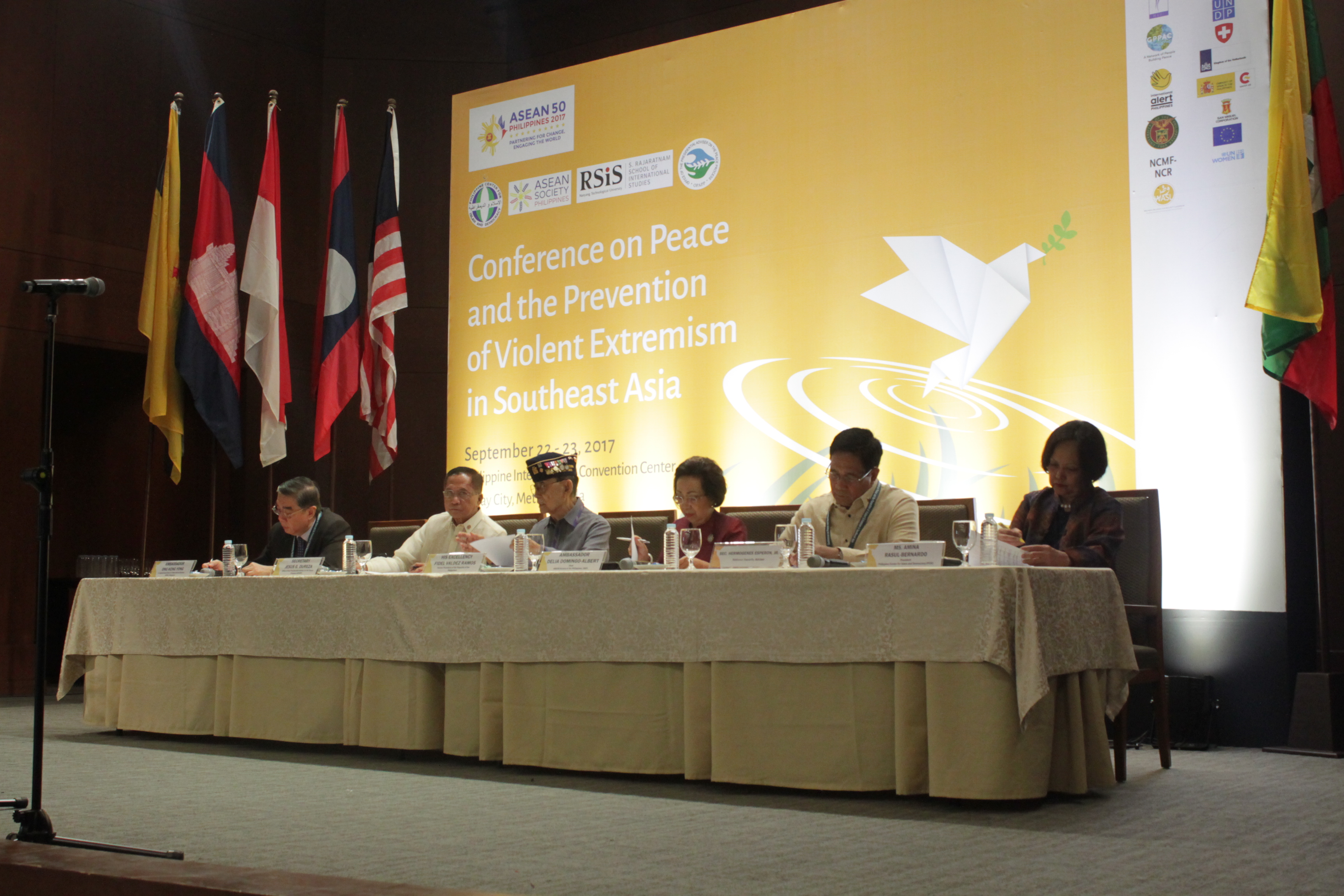Delegates from the Association of Southeast Asian Nation (ASEAN) member states, civil society organizations, and other sectors converged to discuss the threats and prevention of violent extremism in the Philippine International Convention Center.
Organized by the ASEAN Society of the Philippines (ASP), Philippine Center for Islam and Democracy (PCID), S. Rajanatnam School of International Studies (RSIS) and the Office of the Presidential Adviser on the Peace Process (OPAPP), The two-day Conference on Peace and Prevention of Violent Extremism in Southeast Asia aims to develop policies and standards for action plans at national and regional levels, strengthen different sectors to prevent the spread of extremism, engage local communities as partners for rehabilitation and reintegration initiatives and address social dynamics and drivers of radicalization of violence.
In his welcome remarks, Presidential Peace Adviser Jesus Dureza stressed the importance of unity to prevent extremism and espoused that the ASEAN leaders should be made aware of this growing threat.
“We should bring this to the level of the ASEAN leaders, while we are addressing it on our own individual ways, here in the Philippines, as you do in other countries, I think it is also very important that we bring these shared visions to the level of our leaders because it is on that level that we can effectively address violent extremism. “
The keynote speaker, former President Fidel V. Ramos, who is also the Emeritus Chairman of the ASEAN Society Philippines, also reminded the ASEAN Member states to address the root cause of extremism.
“We should address poverty. Whether insurgency, criminality, drug abuse and nuclear bullying, it always starts with poverty” he said.
The former President also called for global partnerships and a borderless community of nations to address social injustices that causes extremism.
“These should be one Asia, one Europe, one Oceana, one World, one family.”
The first day of the event discussed the strategic context of violent extremism in Southeast Asia while the second day will tackle the potential interventions on preventing violent extremism in ASEAN. Breakout sessions were also held with the different sectors of the society with a special session for the Marawi experience.
Around 300 participants from different sectors such as political leaders, government officials, security analysts, peace advocates, academe, religious leaders, media, women and youth attended the conference with at least ten resource persons and speakers from different ASEAN countries.
####












